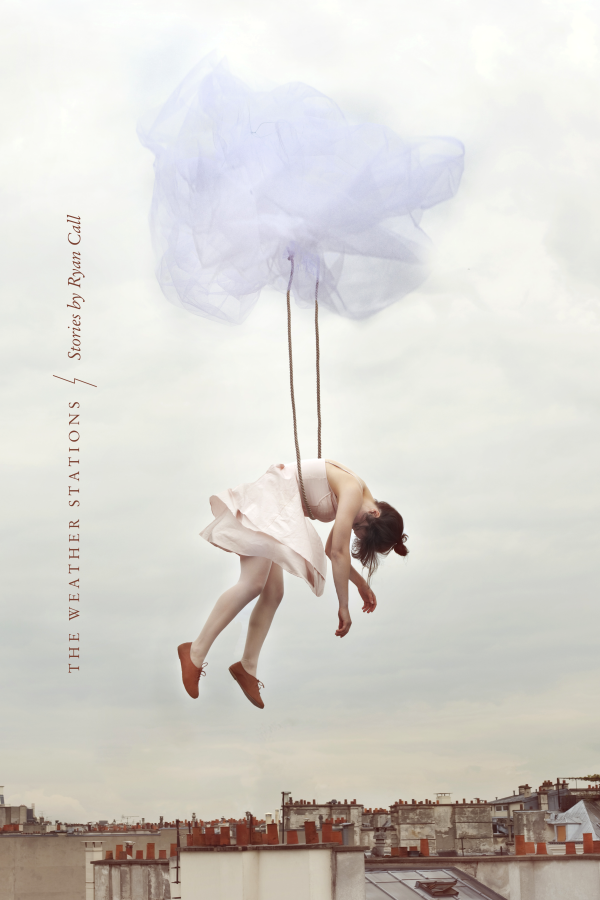All you can ever do with people is back out of them.
 Rejoice! It’s January but I left the house! You know what got me to do this? Only the best reading you could find in New York City: Gary Lutz opening for Robert Lopez. Hot damn. It’s true.
Rejoice! It’s January but I left the house! You know what got me to do this? Only the best reading you could find in New York City: Gary Lutz opening for Robert Lopez. Hot damn. It’s true.
Winter does this to people, especially in any grey city; I mean it makes them suspicious of outside. I know I am. I ran into Sasha Fletcher and we confirmed it; both of us are suffering through the season. It’s almost as bad as Christmas.
But if ever there was a reading during which it was easy to hold good posture, it was this one. When was the last time it was not only easy, but enjoyable to sit up so straight? I am not even sitting up straight right now, though I try. Gary Lutz read from a work-in-progress called Divorcer, which was full of the kinds of things I enjoy: Confused people failing to get away from each other; the phrase “duffel bag”; the following sentence: “All you can ever do with people is back out of them.” We had a great time listening to Gary.
Robert Lopez read all of my favorite stories from his new collection, Asunder. I thought that was true until I got home and looked at my copy again and realized I can not pick favorites in that book. The narrators of Lopez’s are hypnotically unwell. Getting in their little worlds made me feel like maybe January isn’t so terrible after all: For one thing, we’re all laughing, and for another, I am not as unwell as some.
The audience (one that was packed in close and featured glasses) listened well and laughed frequently. Way to go, you all. Good work paying attention. See you in the springtime or at the next thing that warrants stomping through ice.
“Writing has never been capitalism’s thing. Capitalism is profoundly illiterate.” —Deleuze and Guattari, Anti-Oedipus
Iambik/LibriVox
 I prefer reading a book to listening to a book. Even when I’m driving, I prefer reading a book to listening to a book. I once drove eight hours, from Pensacola to Lake Wales, Florida, while reading Tom Wolfe’s The Electric Kool-Aid Acid Test. This horrified everyone who cared about me. This was before the days of education about texting and driving. I was doing a two-year stint as a traveling salesman of a sort (I peddled eighth-rate university educations), which was great for seeing the country. Most of the country I saw was country I saw after I arrived at a place. The bulk of my out-of-Florida driving was on interstate highways, and they all look the same. My in-Florida driving was on two-lane roads I came to know the way you know the neighborhood roads that lead to your house. It got boring, I mean, and I was in the best phase of a reader’s life — that time when you have discovered that there is a vast literature available for you to read, but you haven’t yet read most of it.
I prefer reading a book to listening to a book. Even when I’m driving, I prefer reading a book to listening to a book. I once drove eight hours, from Pensacola to Lake Wales, Florida, while reading Tom Wolfe’s The Electric Kool-Aid Acid Test. This horrified everyone who cared about me. This was before the days of education about texting and driving. I was doing a two-year stint as a traveling salesman of a sort (I peddled eighth-rate university educations), which was great for seeing the country. Most of the country I saw was country I saw after I arrived at a place. The bulk of my out-of-Florida driving was on interstate highways, and they all look the same. My in-Florida driving was on two-lane roads I came to know the way you know the neighborhood roads that lead to your house. It got boring, I mean, and I was in the best phase of a reader’s life — that time when you have discovered that there is a vast literature available for you to read, but you haven’t yet read most of it.
Something happened, though. I traded my father a car for a pickup truck. The pickup truck had a manual transmission. I wasn’t very good with the stick shift. The first time I took it out on Highway 27, I stalled it at in intersection. The light turned green, and I tried to go, but I blew it. A man in a tiny white car rammed into my back bumper. It wasn’t a high-impact accident, but his wife was nine months pregnant. She was okay, but I had nightmares for a week about killing other people’s babies. There are other kinds of accidents, my wife said. What if you had been going fifty miles per hour? What if you had been reading? READ MORE >
Notes On Frans Zwartjes’s Living (1971)

While researching Futurist filmmakers this morning, I somehow stumbled across this Dutch filmmaker named Frans Zwartjes (who’s not a Futurist). I watched a few of his short films (which you can find at ubuweb) and then decided to track down more information on him. Turns out, Mike wrote about one of Zwartjes’s films called Living at his old film site. I began reading his words and when I got to the line “it remains not only my favorite Zwartjes film, but also one of the best films that I’ve ever seen,” I quickly decided to stop reading so as not to spoil my initial viewing experience with any preconceived ideas. Instead, I just went and watched it here . Fuck’n A, folks. I’m with Mike. This film is utterly mesmerizing. I recommend sacrificing 15 minutes of your life to it.

Literature Party at AWP

(Thanks to Matthew Simmons, whose gif I’m recycling.)
Usually when I try to get my friends to go to a party or a show or something, they ask for details. And usually I’ll just know one vague thing, Uh, it’s this writer-lady who I met once and she seemed pretty cool. Like, I won’t even know what time it starts, except for, You know, rock time.
But I’m damn knowledgeable about Literature Party, the main event at AWP this year, and this time I’m telling all my friends. Here’s the straight dope.
Literature Party is a reading that’s more of a dance, and it’s intended to benefit 826DC. (You’re probably familiar with the 826 organization. It’s that thing that was founded years ago by McSweeney’s as like a literacy program, to help kids outside school and to help teachers in school. A new office opened in DC last year.)
It’s being held at the Black Cat’s main room. Will someone from DC chime in with a Yelp! about the Black Cat? I’ve been there a couple times but never to the main room. It’s big, though. It holds 700 people, and we want to squeeze in every last person.
Blake is going to host a short reading to kick off the event, because this is AWP, after all. It’s going to feature Amelia Gray (whose reading at Vermin on the Mount: Denver last year was The Best Reading of 2010), Tao Lin (who, frankly, is a pretty boring reader but that’s what makes it so rich) and Patrick Somerville (whom Featherproof swears by but I’ve never seen). One of the problems I’ve had with off-site AWP readings is that you can’t hear anything, but the soundsystem at the Black Cat will fix that. If it’s good enough for The Get Up Kids, it’s good enough for very short fiction.
There will also be immersive performances, too. You can have Melissa Broder read your fortune, for instance. You can confess your publishing sins to Richard Nash. Go head to head with Giancarlo DiTrapano in arm wrestling. I’m going to walk around with an electric guitar and a pocket amp so I can hear you, um, shred. And more.
But the best part, I think, is just going to be the hanging out. DJ Lil ‘E, who is amazing, is going to play songs (and she wants to know what to play: make a list in the comments at the Facebook page). We’re just going to chill out with some new and old friends.
There’s more info and a complete list of sponsors at the Literature Party website. Tell your friends.
Ishmael Reed on the Mark Twain Controversy

Instead of doing a gotcha search on Twain’s “Huckleberry Finn,” I recommend that its critics read it. They will find that Twain’s Jim has more depth than the parade of black male characters that one finds in recent movies, theater and literature, who are little more than lethal props. Jim is self sufficient, capable of fending for himself amidst dire circumstances, cares about his family, is religious and has goals. He is one of the few characters in the book with any kind of integrity.
In a time when blacks were considered by some to be little more than brutes, Twain has blacks communicating with one another through complicated codes while the whites commit such violence against the slaves and each other that the feuding between two families is such that only a few male members remain. Twain uses the same aggressive satire to expose the hypocrisy of the slave owners.
The fact that a critic has taken to tampering with Twain’s great work is another sign that the atavistic philistinism that has taken hold of our politics and culture has found a place in academia.
Read the rest at the Wall Street Journal (which has suddenly become a friend of literature in the last two years. Who would have thought the Wall Street Journal would be running pieces by Ishmael Reed? It’s a thing worth celebrating.)
Judy Garland on Writing
Behind every cloud is another cloud.
I think there’s something peculiar about me that I haven’t died.
I was born at the age of twelve.
When I walk onstage you should hear my balls clank.
I believe in the idea of the rainbow. And I’ve spent my entire life trying to get over it.
If I am a legend, then why am I so lonely?
I am a chemist. I know what pills I am taking!
The most nightmarish feeling in the world is suddenly to feel like throwing up in front of four thousand people.
At least one wall is shaking.
There is fat and there is bloat.
I’ve either been an enormous success or just a down-and-out failure.
I’m not drunk. I am glazed.
I want to finish this, do you mind?
“Fifteen Theses on Contemporary Art” by Alain Badiou

1. Art is not the sublime descent of the infinite into the finite abjection of the body and sexuality. It is the production of an infinite subjective series through the finite means of a material subtraction.
2. Art cannot merely be the expression of a particularity (be it ethnic or personal). Art is the impersonal production of a truth that is addressed to everyone.
3. Art is the process of a truth, and this truth is always the truth of the sensible or sensual, the sensible as sensible. This means : the transformation of the sensible into a happening of the Idea.
Isaac Bashevis Singer on Translation

The fact that I don’t have as many readers in Yiddish as I would have liked to have bothers me. It’s not good that a language is going downhill instead of up. I would like Yiddish to bloom and flower just as the Yiddishists say it does bloom and flower. But as far as translation is concerned, naturally every writer loses in translation, particularly poets and humorists. Also writers whose writing is tightly connected to folklore are heavy losers. In my own case, I think I am a heavy loser. But then lately I have assisted in the translating of my works, and knowing the problem, I take care that I don’t lose too much. The problem is that it’s very hard to find a perfect equivalent for an idiom in another language. But then it’s also a fact that we all learned our literature through translation. Most people have studied the Bible only in translation, have read Homer in translation, and all the classics. Translation, although it does do damage to an author, it cannot kill him: if he’s really good, he will come out even in translation. And I have seen it in my own case. Also, translation helps me in a way. Because I go through my writings again and again while I edit the translation and work with the translator, and while I am doing this I see all the defects of my writing. Translation has helped me avoid pitfalls which I might not have avoided if I had written the work in Yiddish and published it and not been forced because of the translation to read it again.
NOW AVAILABLE for preorder: The Weather Stations by Ryan Call
I’ve been waiting for this one for a long time and it is finally here:

Available for preorder now from Caketrain for only $8, or together with any of Caketrain’s beautiful single author editions for $12.

